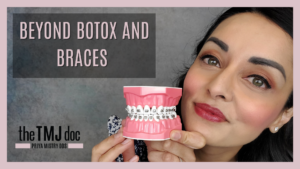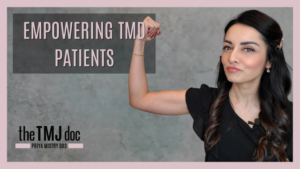Posture is often overlooked when evaluating jaw problems, but the alignment of the head, neck, and spine plays a significant role in TMJ health. At TMJ Doc in Vancouver, WA, the relationship between posture and jaw function is a key part of patient care. Poor posture doesn’t just affect the back and shoulders—it can also impact how the jaw moves and feels on a daily basis.
Understanding this connection is essential for anyone dealing with persistent jaw discomfort, headaches, or neck tension.
How Posture Impacts the Jaw
The head is a heavy structure—on average, it weighs around 10–12 pounds. In ideal posture, the head is balanced directly over the spine, allowing the muscles and joints of the neck and jaw to function efficiently. But when posture shifts forward—often due to extended screen time, phone use, or slouching—the muscles of the head, neck, and jaw are forced to work harder to support the imbalance.
This extra strain can cause:
- Misalignment of the jaw joints (TMJs)
- Muscle fatigue and tension in the face, neck, and shoulders
- Restricted jaw movement or pain during chewing or speaking
- Increased risk of teeth grinding or clenching
Over time, these issues can contribute to or worsen TMJ dysfunction.
Signs of Posture-Related TMJ Problems
Common indicators that posture may be affecting jaw function include:
- Frequent headaches or migraines
- Jaw pain, popping, or clicking
- Neck or upper back stiffness
- Feeling of fatigue in the jaw or face
- Uneven wear on teeth or changes in bite alignment
Patients with forward head posture are particularly susceptible, as the position places constant stress on the muscles and joints that support the jaw.
Addressing the Root Cause
At TMJ Doc in Vancouver, WA, treatment goes beyond the jaw. Posture assessments are part of the diagnostic process, helping to identify structural imbalances that may be contributing to TMJ dysfunction. Therapy plans may include custom oral appliances to support jaw alignment, along with strategies to improve head and neck posture.
Correcting posture not only helps reduce jaw pain but also supports better breathing, movement, and overall comfort.
TMJ and Posture Therapy in Vancouver, WA
If poor posture is playing a role in your TMJ symptoms, a personalized care plan can help realign the body and relieve pain at the source. Contact TMJ Doc today to schedule an evaluation and start your journey to improved health and balance.







